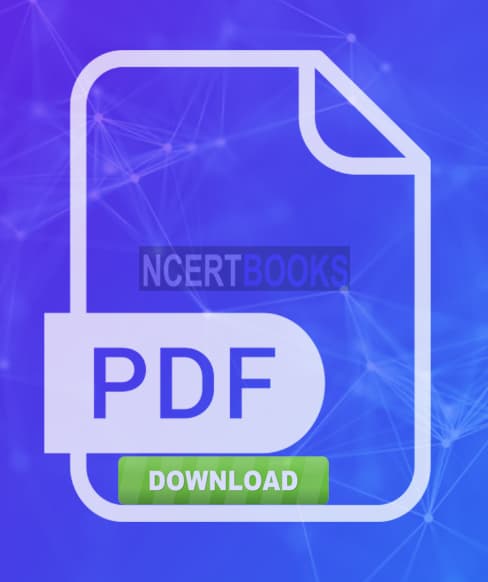UPSC Notes in English including PDF free download
UPSC is a highly competitive exam that requires diligent preparation, critical thinking, and effective time management.
Here are some key topics and tips to keep in mind as you prepare for the exam:
UPSC Notes in English
Exam Pattern and Syllabus
The UPSC Exam is one of the most competitive exams in India, and understanding its pattern and syllabus is crucial for success. The exam consists of three stages: the Preliminary Exam, the Main Exam, and the Personality Test.
The Preliminary Exam is a screening test that consists of two objective-type papers – General Studies Paper I and General Studies Paper II (CSAT). The General Studies Paper I covers a wide range of topics such as Indian history, geography, polity, economy, science and technology, and environment. The General Studies Paper II (CSAT) tests your aptitude and reasoning skills.
The Main Exam is a written exam that tests your knowledge and understanding of various topics. It consists of nine papers, including one essay paper, four General Studies papers, two Optional papers, and two language papers. The essay paper tests your writing skills and ability to present your ideas coherently. The General Studies papers cover a wide range of topics such as Indian history, geography, polity, economy, science and technology, and environment, and test your understanding of current affairs and events. The Optional papers allow you to choose a subject of your choice, such as History, Geography, Political Science, Sociology, and Public Administration, and test your knowledge of that subject. The language papers test your proficiency in English and any Indian language.
Understanding the exam pattern and syllabus is important for planning your preparation effectively. You should study each subject in-depth and focus on the topics that are frequently asked in the exam. You should also practice solving previous year question papers and mock tests to get an idea of the exam pattern and time management.


Current Affairs
Current affairs play a crucial role in the UPSC exam, as the questions are often based on the latest developments in national and international news, politics, economics, science and technology, environment, and social issues. You should stay updated on the latest events and developments by reading newspapers, watching news channels, and following online sources.
Reading newspapers is one of the most effective ways of staying updated on current affairs. You should read a national newspaper, such as The Hindu, The Indian Express, or The Times of India, and a business newspaper, such as The Economic Times or Business Standard, on a daily basis. You should also read magazines such as Yojana, Kurukshetra, and Frontline to gain a deeper understanding of current affairs and issues.
Watching news channels is also a good way of staying updated on current affairs. You should watch news channels such as NDTV, Times Now, or India Today to get a quick summary of the latest developments. You can also watch debates and panel discussions to understand different perspectives and opinions on current issues.
Following online sources such as websites and social media platforms is another effective way of staying updated on current affairs. You can follow websites such as PIB, PRS, or IDSA for government notifications, policy updates, and research papers. You can also follow social media handles of newspapers, news channels, and government organizations for the latest news and updates.
General Studies
General Studies is an important section in the UPSC exam, as it covers a wide range of topics such as Indian history, geography, polity, economy, science and technology, and environment. You should have a good understanding of these topics, along with their interlinkages.
To prepare for General Studies, you should start by reading NCERT books from Class 6 to 12 for each subject. These books provide a solid foundation of knowledge and are essential for understanding complex topics.
You should also read standard reference books and study materials recommended by experts. Some of the popular books for General Studies are Indian Polity by M. Laxmikanth, Indian Economy by Ramesh Singh, and A Brief History of Modern India by Spectrum Publications.
Apart from reading books, you should also practice solving previous year question papers and mock tests to test your understanding of the topics and improve your time management skills. You should also focus on current affairs and events related to each topic and their interlinkages.
Optional Subject
The Optional Subject is an important section in the UPSC exam, as it allows you to choose a subject of your choice and showcase your knowledge and understanding of that subject. You should choose a subject that you are comfortable with and have a strong interest in.
To prepare for the Optional Subject, you should start by reading standard reference books and study materials recommended by experts. You should also practice solving previous year question papers and mock tests to get an idea of the exam pattern and improve your time management skills.
You should also attend coaching classes or join online courses for the Optional Subject to get a deeper understanding of the subject and clear your doubts. You can also join study groups and discussion forums to interact with other aspirants and share your knowledge and ideas.
Essay Writing
The Essay Writing section is an important section in the UPSC exam, as it tests your writing skills and ability to present your ideas coherently. You should have a good understanding of the topic and be able to present your ideas in a logical and structured manner.
To prepare for Essay Writing, you should start by reading essays written by experts and analyzing their structure and style. You should also read newspapers and magazines to gain a deeper understanding of current affairs and issues.
You should practice writing essays on a regular basis and get them evaluated by experts or mentors. You should also attend coaching classes or join online courses for Essay Writing to get feedback and guidance on your writing skills.
Answer Writing
Answer writing is a crucial skill that you need to master to excel in the UPSC exam. You should practice writing answers to previous year question papers and sample questions, focusing on clarity, relevance, and brevity. You should also learn to prioritize the information and present it in a structured and coherent manner.
Time Management
Time management is a critical factor in the UPSC exam. You should plan your preparation schedule in advance and allocate sufficient time for each topic. You should also practice solving papers within the time limit to build speed and accuracy.
Revision and Practice
Revision and Practice are important aspects of the UPSC exam, as they help you consolidate your knowledge and improve your time management skills. You should revise each topic thoroughly and practice solving previous year question papers and mock tests.
To revise effectively, you should make notes and summaries of each topic and keep them handy for quick revision. You should also revise current affairs and events related to each topic and their interlinkages.
You should practice solving previous year question papers and mock tests to get an idea of the exam pattern and improve your time management skills. You should also analyze your performance and identify your strengths and weaknesses to focus on areas that need improvement.
What are UPSC notes?
UPSC notes are study materials prepared to help candidates prepare for the Union Public Service Commission (UPSC) exam. These notes contain important topics and concepts related to General Studies, Optional Subjects, Essay Writing, and more.
Why are UPSC notes important?
UPSC notes are important as they provide a comprehensive and structured approach to preparing for the exam. They help candidates understand the exam pattern and syllabus, and focus on important topics and concepts. They also serve as a quick reference guide for revision and practice.
Where can I find UPSC notes?
UPSC notes can be found online on various websites, forums, and blogs. They can also be purchased from bookstores and coaching institutes. However, it is important to ensure that the notes are authentic and reliable, and have been prepared by experts in the field.
Can I prepare for the UPSC exam without UPSC notes?
While UPSC notes are a helpful resource, it is not mandatory to use them for exam preparation. Candidates can also prepare using standard reference books, study materials, and previous year question papers. However, using UPSC notes can provide a structured and organized approach to exam preparation.
How should I use UPSC notes for exam preparation?
To use UPSC notes effectively, candidates should first understand the exam pattern and syllabus. They should then go through the notes and identify important topics and concepts that need to be covered. They should also supplement the notes with standard reference books, study materials, and current affairs updates. Finally, they should revise regularly and practice solving previous year question papers and mock tests.
Are UPSC notes sufficient for exam preparation?
UPSC notes can be a helpful resource for exam preparation, but they may not be sufficient on their own. Candidates should supplement their notes with standard reference books, study materials, and current affairs updates. They should also practice solving previous year question papers and mock tests to improve their exam preparation.
How can I create my own UPSC notes?
To create your own UPSC notes, you can start by going through standard reference books and study materials. Identify important topics and concepts that are relevant to the exam syllabus. Organize your notes in a structured and concise manner, and include important points, facts, and figures. You can also supplement your notes with current affairs updates and practice solving previous year question papers.
Yes, you can share your UPSC notes with others, but it is important to ensure that they are accurate and reliable. You should also give credit to the original sources of information and avoid plagiarism. Sharing notes can be a helpful way to exchange knowledge and collaborate with other UPSC aspirants.
How can I ensure that the UPSC notes I use are authentic and reliable?
To ensure that the UPSC notes you use are authentic and reliable, you should look for notes that have been prepared by experts in the field or by reputable coaching institutes. You can also check for reviews and feedback from other users, and verify the information with standard reference books and study materials. It is important to avoid using notes from unreliable sources, as they may contain inaccurate or outdated information.
How should I revise my UPSC notes?
To revise your UPSC notes effectively, you should first review the important topics and concepts. You can also supplement your notes with current affairs updates and practice solving previous year question papers and mock tests. Make sure to revise regularly and focus on the areas where you need more practice. You can also use mnemonics, flashcards, and other memory aids to help you retain important information.
UPSC notes in English free PDF Download:
CLICK HERE to download UPSC notes in English free PDF Download
Conclusion
Preparing for the UPSC exam requires a systematic approach and a lot of hard work and dedication. You should understand the exam pattern and syllabus, stay updated on current affairs, focus on General Studies and Optional Subjects, practice Essay Writing, and revise and practice regularly. With the right strategy and preparation, you can crack the UPSC exam and achieve your dream of becoming a civil servant.

